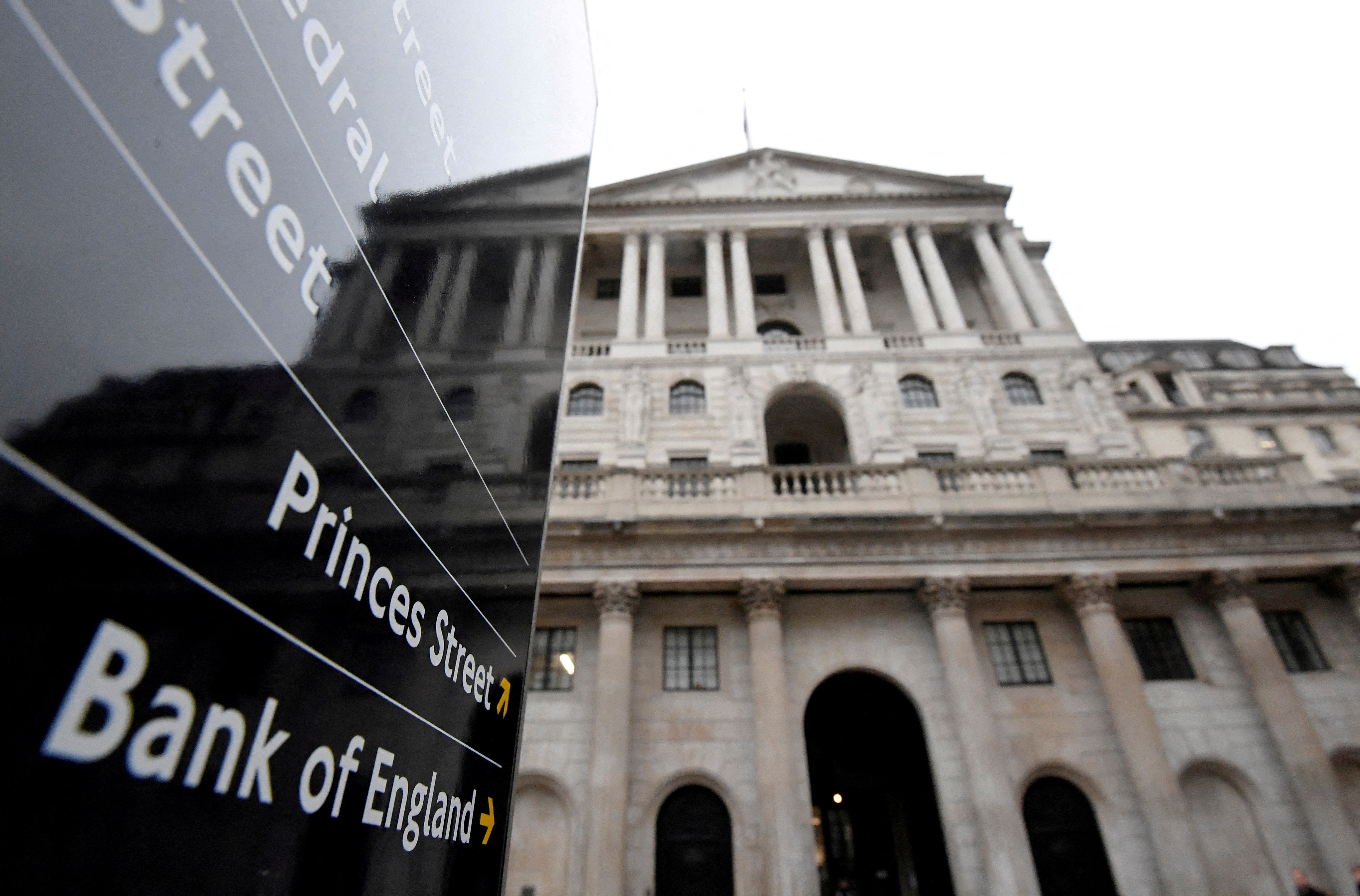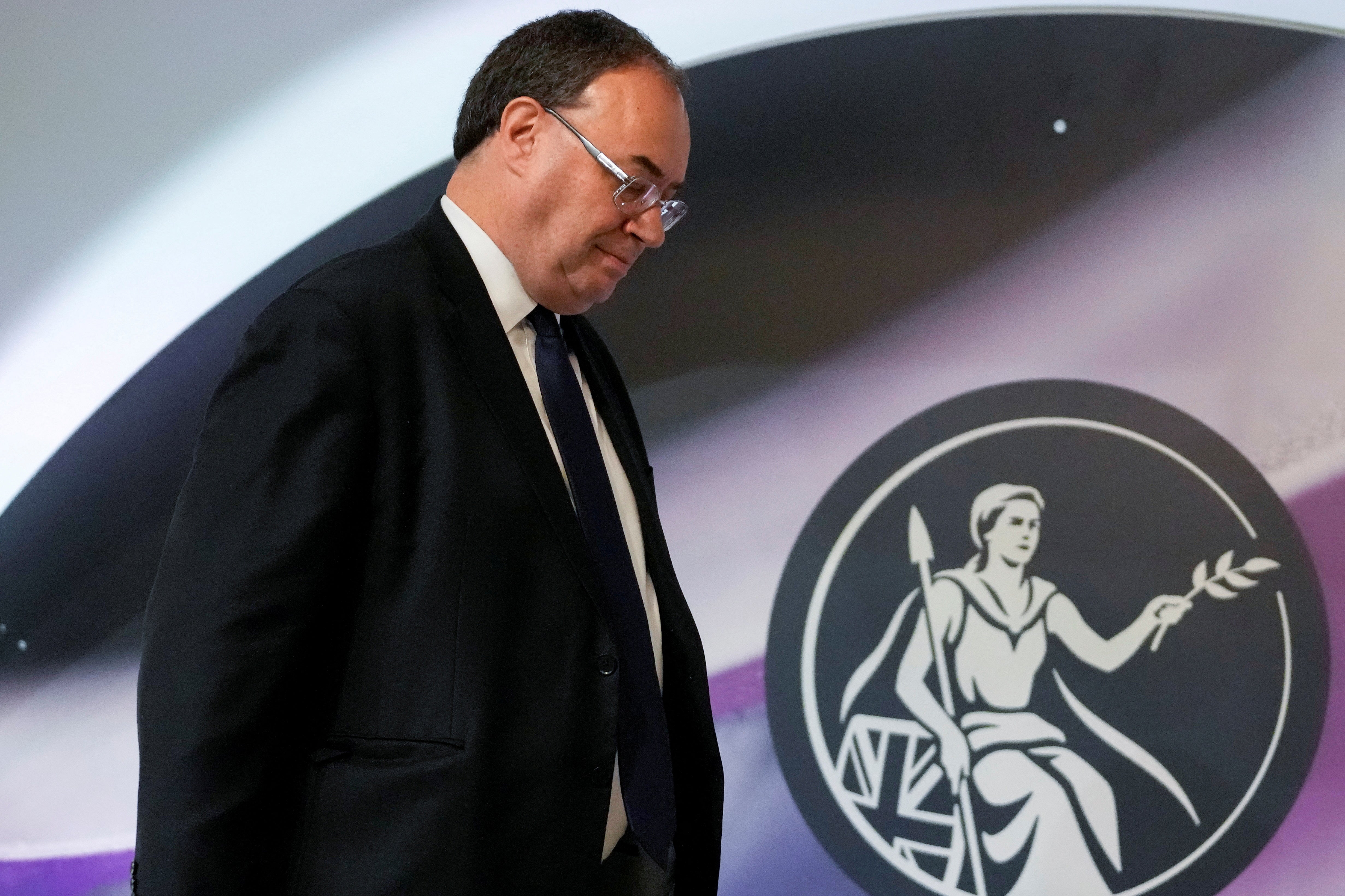Bank of England poised to hike interest rates to 1.25% in battle against inflation
Base rate of interest currently stands at 1 per cent - its highest point in 13 years

The Bank of England is expected to hike interest rates again on Thursday as it struggles to temper rising inflation and poor economic growth.
The Bank’s monetary policy committee is expected to hike the base rate of interest for the fifth time in a row - to a rate of 1.25 per cent.
At its May meeting, the Bank increased the base rate to 1 per cent, its highest point in 13 years.
If they do go ahead with another raise on Thursday it would be the first time since January 2009 that the rate was higher than 1 per cent.
Some had even speculated that it might reach 1.5 per cent – a so-called 50 basis points rise.
But that was before official data showed that gross domestic product (GDP) shrank 0.3 per cent, worse than many had predicted.
It will now fall to the nine-person committee to decide what is the best outcome. These include Andrew Bailey, the bank’s governor, two deputy governors: Sir Jon Cunliffe and Ben Broadbent; but also Huw Pill, its chief economist.
“April’s GDP data … surely will mean that the internal block – Bailey, Broadbent and Pill – sticks to voting to raise Bank Rate by 0.25 per cent this month,” said Samuel Tombs, chief UK economist at Pantheon Macroeconomics.
“And given that some members thought last month that the guidance regarding further rises in interest rates was obsolete, we expect to see at least one of them, most likely Cunliffe, to vote for no change.
“With markets currently pricing in a 34 base point increase in Bank Rate this week and a further 41 base point rise for the August meeting, we expect both rate expectations and sterling to drop in the wake of this week’s meeting.”
Committee members will want to rein in inflation, which has hit highs not seen for decades.
Laith Khalaf, head of investment analysis at AJ Bell, said: “The Bank of England faces a stern test of its mettle at the next interest rate decision, and any hesitation is likely to result in the pound being punished on the currency markets.”
Such a drop would mean that the price of petrol and diesel, and other imports that the UK pays for in dollars, would rise. This month, the average price of filing a family car topped £100 for the first time.
Any further jump is unlikely to be welcomed by drivers. There are many indications that the Bank might hike rates. The MPC has voted for a rise in each of the last four meetings, in December, February, March and May. Last time three out of nine members of the Monetary Policy Committee already voted for rates to be set at 1.25 per cent.

However, some things have changed since then. The UK economy looks set to struggle, with an OECD forecast predicting it will be the weakest in the G7 next year.
“By raising interest rates, the Bank is putting the brakes on an economy that is already slowing of its own accord,” Mr Khalaf said.
“That risks the economy stalling, or worse, going into reverse.”
The Bank has been given a little more wriggle room by the chancellor, who is set to funnel billions to struggling households to help them deal with soaring energy bills.
An interest rate rise will eat away at some of this handout, because the cost of borrowing will go up for homeowners. But equally drivers would suffer if rates are maintained and savers will benefit from a hike.
People are certainly expecting rises to come. According to a survey commissioned by the Bank of England and performed by Ipsos in early May, 70 percent of people expect rates to rise over the next 12 months.
The survey, released on Friday, showed that 28 per cent thought a rate rise would benefit the economy, 22 per cent said the same about a drop, and 28 per cent want them to remain at current levels.
Additional reporting by Press Association.


Join our commenting forum
Join thought-provoking conversations, follow other Independent readers and see their replies
Comments